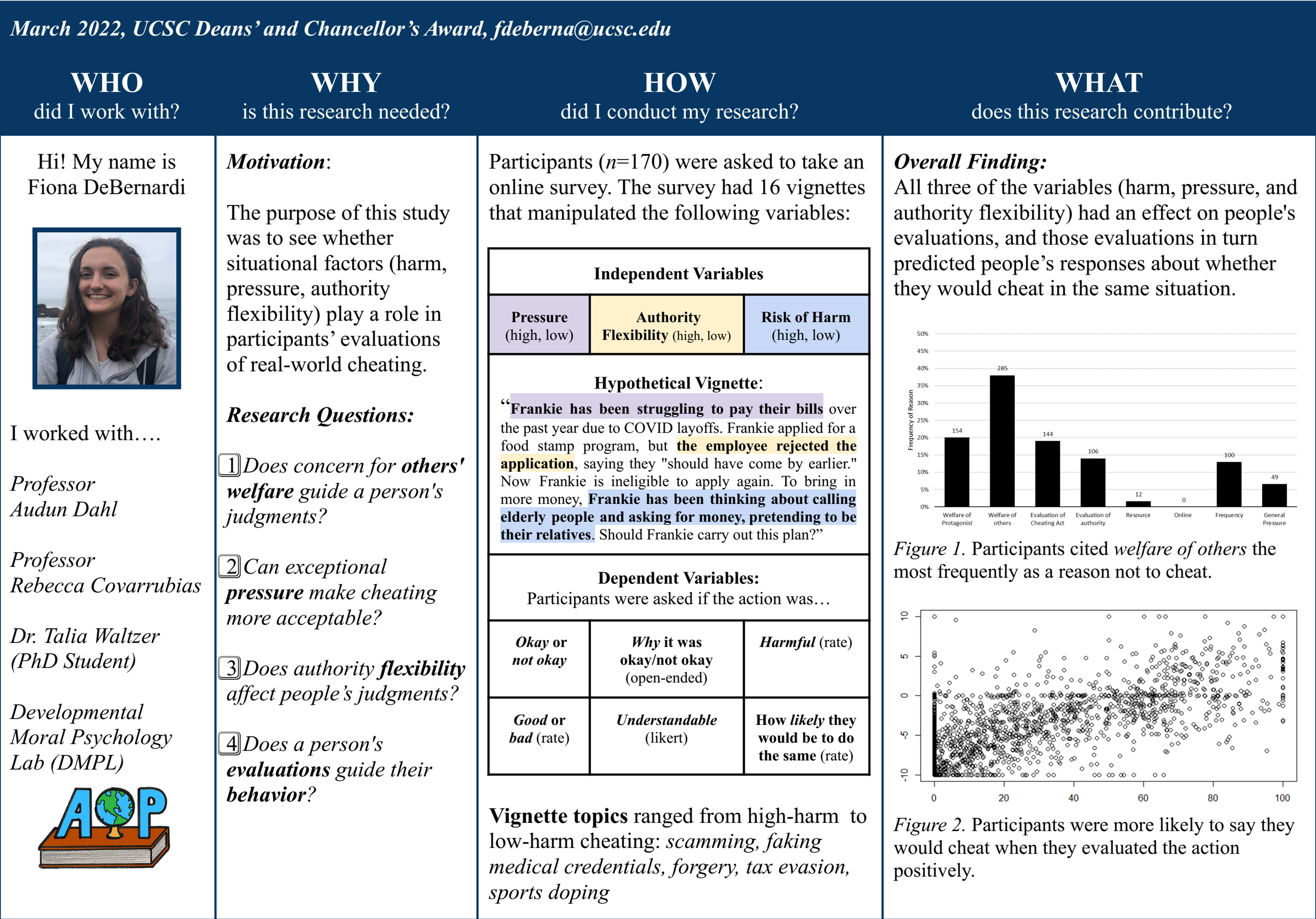
“No Harm, No Foul?” Evaluations of Cheating Across Contexts
Social Sciences
Psych 194A, Psych 195B
In 2001, an energy company called Enron lied about profits to get people to invest in their company. Thousands of employees lost their jobs, and investors lost billions of dollars (Di Miceli da Silveira, 2013). Why do people choose to lie or scam, especially when these dishonest actions can have life-changing consequences? Although people think that cheating and dishonesty are generally wrong, they sometimes make exceptions to their moral principles. For instance, juries give more lenient judgments when presented with contextual details of an offender’s past (e.g., a childhood history of abuse, mental illness) (Barnett et al., 2004; Bell Holleran et al., 2016; Espinoza & Willis-Esqueda, 2015). In prior studies, we found that students evaluated academic cheating more positively when the protagonist faced external pressure to cheat (high obligations to others, low access to resources, and low teacher flexibility; DeBernardi et al., 2021). The present study examined whether similar considerations shape judgments about non-academic cheating (e.g., scams, forgery, fraud). To test this, we presented undergraduates (N = 170) with hypothetical vignettes about non-academic cheating, varying along the following dimensions: (1) risk of harm to others, (2) pressure, and (3) authority flexibility. I selected these variables based on prior work indicating these factors often accompany cheating situations (Jensen et al., 2002; Waltzer & Dahl, 2022). We found that when the cheating in the scenario was unlikely to harm others, the protagonist faced high pressure, or the authority was inflexible, participants were more likely to evaluate the cheating act positively and be willing to cheat in the same situation. The findings suggest that, as with academic cheating, several situational considerations can lead people to judge that cheating is acceptable. Since these considerations apply to many situations in which people cheat, judgments that cheating is acceptable in specific situations may explain why people decide to cheat in those situations.